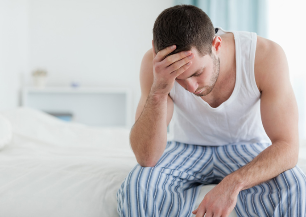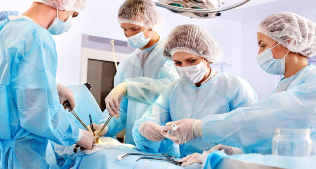Prostatitis — urogenital pathology associated with an androgenic-type (found only in males). According to the statistics, the symptoms of this disease are observed in about half of the representatives of the stronger sex. The main part of them were men over the age of 50 years. But the prostatitis appears in the young age, on the back of the other, or as a separate pathology.
The disease is not contagious and is not sexually transmitted (it is not found in women). But the sex life is often a precipitating factor.

What is prostatitis
What is prostatitis, and, you know, it's about 40% of the men and of the entire population of the globe. This is the disease of the prostate gland, resulting from attacks of inflammatory agents. As a result of their exposure to the development of undesirable microflora, which, if untreated, causing complications.
Prostatitis in men, usually begins acutely, with the manifestation of the typical clinical manifestations. However, the danger of the disease lies in the fact that it can be a secret, it gradually passes into the chronic stage.
The most susceptible to the inflammation of the prostate gland, men aged 30-50 years of age, leading a sedentary lifestyle and having bad habits. However, in recent times the disease has started to "look younger" and appear even in young men, aged 20-25 years old.
The symptoms of prostatitis
The symptoms of prostatitis in men, they occur at the initial stage. The basic symptoms are subtle, and often remain without attention. This causes the transmission of the disease into suppurative form or chronic.
Knowing the early signs of prostatitis in men, it can to prevent the onset of complications such as impotence and prostate. What symptoms should pay attention to:
- frequent, painful urination;
- deterioration of potency, early ejaculation, absence of ejaculation, decreased sex drive;
- pain during defecation;
- the pain in abdomen, sacrum and groin;
- weakness, drowsiness, General malaise;
- sweating;
- an increase in body temperature, signs of intoxication: headache, fever, and so on.
The main symptom of prostatitis in men is a pain. It can be pronounced or slight, to be given in the lumbar and groin. Often, the patient is not able to determine the source of the pain, because it resonates with the other organs.
Dysuric disorders encountered in acute and chronic form of prostatitis men. These are frequent urination accompanied by a feeling of incomplete emptying of the bladder. The urge to be overwhelmed-even in the night time, causing waking up a few times. In the bathroom it leaves a small amount of urine, and this process is accompanied by painful sensations.
The sexual dysfunction tend to increase. One of the main symptoms of prostatitis in men is of the breakdown of an erection. With the development of the disease on the quality of sexual life was getting worse, the sex ceases to be fun. Marked deterioration of the reproductive function. Inflammatory diseases of the prostate gland in men can cause infertility.
The reasons and factors that lead
The causes of prostatitis are varied, and are related primarily to the irregularity in the birth control and a healthy way of life. Although it is often a disease occurs on the background of infectious processes in the urogenital system.
Causes of prostatitis include the following:
- venereal sexually transmitted disease;
- hypothermia;
- sedentary lifestyle (sedentary work);
- blood stasis in the prostate and the surrounding tissue;
- chronic constipation;
- immunosuppression;
- protection by means of the interrupted sexual intercourse;
- an injury of the perineum;
- wearing tight underwear;
- the abuse of alcohol, Tobacco use.
The disease causes the syndrome of prostatitis:
- urethritis;
- hemorrhoids;
- foci of bacterial infection;
- diseases of the rectum;
- chlamydia, gonorrhea, and other Stds.
Prostatitis is often the result of unhealthy eating habits. The precipitating factors include the following:
- unbalanced diet prevailing in the intake of the foods that increase the body burden (fried, fatty meals, quick foods, etc.);
- in the stress and its solution with the help of alcohol and drug abuse;
- Smoking. It decreases the protective functions of the body;
- the lack of sleep;
- low physical activity, and, on the other hand, overtraining.
In order to prevent the inflammation of the prostate gland, you need to lead a healthy lifestyle, in a timely manner to treat an existing pathology, and the use of barrier birth control.
The types and forms of prostatitis
The symptoms of prostatitis depend on the type and form of the disease. This parameter also helps to determine the treatment.
The acute form of
This is the beginning of a prostatitis by acute clinical symptoms. The reason for the development of microorganisms that can live in your body for ever and ever, and not to make a claim. However, with the decline of the immune system, they aktiviziruyutsya, and to begin to actively proliferate, which affect the urogenital system.
Acute form is characterized by a rapid development. First of all, the temperature of the body is increased, then the symptom with the ache and discomfort.
In the chronic form, the
The symptoms of chronic prostatitis in men is weak or absent. The main symptom is difficult urination, accompanied by pain in the groin.
However, the absence of symptoms does not necessarily mean that the pathology can pass it on its own, and is not harmful to their health. It is a chronic form, and becomes the cause of benign prostatic hyperplasia and other pathologies of the genitourinary system.
The peculiarity of this form is that when reduced immunity, the disease returned in an acute phase. And each relapse has been more and more pronounced and painful.
The division of chronic prostatitis occurs in the following varieties:

- Bacterial. The reason being bacteria and aktiviziruyutsya to a decrease in the immune system. Also, this kind of include inflammation of the prostate gland caused by a sexually transmitted disease. The first sign of bacterial prostatitis is to get the pain and burning sensation during sex and urination.
- Calculous. The reason is the accumulation of the stones. This species is very rare, and mainly in older men. A sensation when a calculous prostatitis is becoming a pain in the rump and in the groin area when walking.
- Stagnant. This is a non-contagious form of the inflammatory process caused by stagnation of blood in the pelvis. Causing risk factors is a sedentary, sedentary way of life. The lack of sex or no sex. It manifests itself with symptoms such as pain when urinating and the groin.
- Spread. This type of signs are similar in bacterial species. The infectious forms may become a fungus and a single celled micro-organisms which enter from the other organs of the urogenital system. Precipitating factor in the decreased immune system.
- Purulent. The severe form of the disease with an infectious origin. The signs of a suppurative prostatitis in men include the rise in body temperature up to 39 degrees and more, the symptoms of intoxication and purulent discharge from the urethra.
At the first sign of prostatitis is virtually impossible to determine the shape and type of the disease. It is necessary to diagnose and study the condition of the prostate gland.
The risk of prostatitis
In the absence of timely and proper treatment, the inflammation of the prostate gland in men, the risk of complications. They include the following:
- Urethritis. It is an inflammation of the urethra caused by the spread of an infection from the prostate to nearby organs. But urethritis is not difficult, but it appears on the background of renal insufficiency poses a serious threat to health or life.
- Vesiculitis. It is an inflammation of the seminal vesicles, which leads to erectile dysfunction, and infertility.
- An abscess. This is a possible complication of the purulent forms of a prostatitis in which the prostate gland is the accumulated pus. An abscess in the improper treatment, and its absence is fatal.
- Adenoma. The inflammation of the prostate gland leading to its dysfunction and benign formations. The growth of tissue is BPH.
- Cancer. Adenoma and chronic prostatitis are the main reasons for the occurrence of cancer. Due to the weak clinical symptoms, can be distinguished from other pathologies of the genitourinary system, it is much more difficult.
- Infertility. The prostate gland is involved in the synthesis of sperm required for successful fertilization. When inflammation of this organ is disturbed, the natural process of procreation.
When the inflammation of the prostate gland in men is manifested in unpleasant symptoms that leads to further discomfort. The patient deteriorates the quality of the sex life, there are no signs of inferiority. Against this background, there is a discord in the family, isolation, and depression. Therefore, the prostatitis, and neurologic disease are closely related.
In the treatment of prostatitis
In the treatment of prostatitis begins with a diagnosis. For this purpose, a digital and ultrasound examination of the prostate gland, it is named for the General, and the blood biochemical analysis and urine analysis. A doctor is the clinical picture of the disease, the course will examine the impact of the prostatitis in men. On the basis of the case studies are the basis of therapy.
Requires complex treatment, which includes the following:

- to the administration of antibacterial medications;
- the prostate massage;
- physiotherapy;
- the correction of the immune system.
- diet;
- the folk remedies.
In some cases, surgical treatment is indicated. The reasons for surgical intervention are:
- the inflammatory process that affects several organs in the pelvis;
- the complications of prostatitis in benign or malignant tumors;
- ineffective conservative treatment;
- abscess of the prostate gland;
- urinary retention or difficulty urinating;
- the stones in the bladder or kidney disease.
To prevent
For it, than to treat prostatitis, said the urologist. It also gives advice on the correct way to to prevent inflammation and to prevent relapse. They include the following:
- The use of barrier birth control while changing the partner.
- Avoid drinking alcohol and Smoking cigarettes.
- The sides of the hall.
- Proper and balanced diet, including foods rich in essential vitamins and minerals.
- Meri sex life.
In order to prevent the disease, it is much easier than treating it, as well as the consequences of the inflammatory process. And it's definitely a person you will need to know how to look for the symptoms of acute and chronic prostatitis. After the discovery of the first symptoms should immediately go to the doctor and not to self-medicate.

































